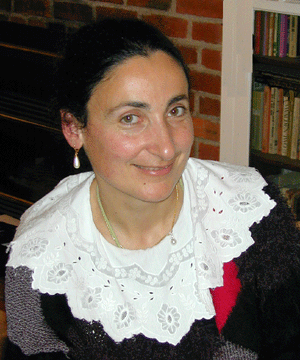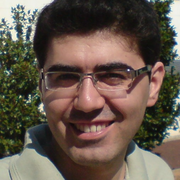2018 Chalearn Looking at People Satellite Workshop ECCV
Organizers

Sergio Escalera
Computer Vision Center (UAB) and University of Barcelona, Spain
sergio.escalera.guerrero@gmail.com
Sergio Escalera is Full Professor at the Department of Mathematics and Informatics, Universitat de Barcelona, where he is the head of the Informatics degree. He is ICREA Academia. He leads the Human Pose Recovery and Behavior Analysis Group. He is Distinguished Professor at Aalborg University. He is vice-president of ChaLearn Challenges in Machine Learning, leading ChaLearn Looking at People events. He is also Fellow of the ELLIS European Laboratory for Learning and Intelligent Systems working within the Human-centric Machine Learning program. He participated in several international funded projects and received an Amazon Research Award. He has published more than 300 research papers and received a CVPR best paper award nominee and a CVPR outstanding reviewer award.

Hugo Jair Escalante
INAOE, México
hugojair@inaoep.mx
Hugo Jair Escalante is researcher scientist at Instituto Nacional de Astrofisica, Optica y Electronica, INAOE, Mexico. Previously, he was assistant professor at the Graduate Program on Systems Engineering at UANL. He holds a PhD in Computer Science, for which he received the best PhD thesis on Artificial Intelligence 2010 award (Mexican Society in Artificial Intelligence). He was granted the best paper award of the International Joint Conference on Neural Networks 2010 (IJCNN2010). He is secretary and member of the board of directors of ChaLearn, The Challenges in Machine Learning Organization, a non-profit organism dedicated to organizing challenges, since 2011. Also, he is member of the board of the CONACYT Network on Applied Computational Intelligence, regular member of AMEXCOMP and member of the National System of Researchers (SNI). Since 2017, he is editor of the Springer Series on Challenges in Machine Learning, a new book series focused on academic competitions within machine learning and related fields. He has been involved in the organization of several challenges in computer vision and machine learning, collocated with top venues in machine learning and computer vision, see http://chalearnlap.cvc.uab.es/. He has served as co-editor of special issues in IJCV, IEEE TPAMI, and IEEE Transactions on Affective Computing. He has served as area chair for NIPS 2016 and NIPS 2017, and has been member of the program committee of venues like CVPR, ICPR, ICCV, ECCV, ICML, NIPS, IJCNN. His research interests are on machine learning, evolutionary computing and its applications on language and vision.

Xavier Baró
Universitat Oberta de Catalunya, Barcelona, Catalonia
xbaro@uoc.edu
Xavier Baró received his B.S. degree in Computer Science at the Universitat Autònoma de Barcelona (UAB) in 2003. In 2005 he obtained his M.S. degree in Computer Science at UAB, and in 2009 the Ph.D degree in Computer Engineering. At the present he is a lecturer and researcher at the IT, Multimedia and Telecommunications department at Universitat Oberta de Catalunya (UOC). He is involved on the teaching activities of the Computer Science, Telecommunication and Multimedia degrees of the UOC, and collaborates as assistant professor on the teaching activities of the Computer Science degree at the Applied Mathematics and Analysis of the Universitat de Barcelona (UB). In addition, he is involved on the Interuniversity master on Artificial Intelligence (UPCUBURV). He is cofounder of the Scene Understanding and Artificial Intelligence (SUNAI) group of the UOC, and collaborates with the Computer Vision Center of the UAB, as member of the Human Pose Recovery and Behavior Analysis (HUPBA) group. His research interests are related to machine learning, evolutionary computation, and statistical pattern recognition, specially their applications to generic object recognition over huge cardinality image databases.

Isabelle Guyon
University Paris-Saclay, France and ChaLearn USA
isabelle@clopinet.com
Isabelle Guyon ( http://guyon.chalearn.org/ ) is chaired professor in “big data” at the Université ParisSaclay, specialized in statistical data analysis, pattern recognition and machine learning. She is one of the cofounders of the ChaLearn Looking at People (LAP) challenge series and she pioneered applications of the MIcrosoft Kinect to gesture recognition. Her areas of expertise include computer vision and and bioinformatics. Prior to joining ParisSaclay she worked as an independent consultant and was a researcher at AT&T Bell Laboratories, where she pioneered applications of neural networks to pen computer interfaces (with collaborators including Yann LeCun and Yoshua Bengio) and coinvented with Bernhard Boser and Vladimir Vapnik Support Vector Machines (SVM), which became a textbook machine learning method. She worked on early applications of Convolutional Neural Networks (CNN) to handwriting recognition in the 1990’s. She is also the primary inventor of SVMRFE, a variable selection technique based on SVM. The SVMRFE paper has thousands of citations and is often used as a reference method against which new feature selection methods are benchmarked. She also authored a seminal paper on feature selection that received thousands of citations. She organized many challenges in Machine Learning since 2003 supported by the EU network Pascal2, NSF, and DARPA, with prizes sponsored by Microsoft, Google, Facebook, Amazon, Disney Research, and Texas Instrument. Isabelle Guyon holds a Ph.D. degree in Physical Sciences of the University Pierre and Marie Curie, Paris, France. She is president of Chalearn, a nonprofit dedicated to organizing challenges, vicepresident of the Unipen foundation, adjunct professor at NewYork University, action editor of the Journal of Machine Learning Research, editor of the Challenges in Machine Learning book series of Microtome, and program chair of the upcoming NIPS 2016 conference.

Meysam Madadi
Universitat de Barcelona and Computer Vision Center, Spain
meysam.madadi@gmail.com
Meysam Madadi received his Bachelor degree in Software Engineering at BuAli Sina university of Hamedan and M.S. degree in Computer Vision and Artificial Intelligence at Universitat Autònoma de Barcelona (UAB) in 2007 and 2013, respectively. He has started his research activities by focusing on information retrieval and data mining since his bachelor project, continuing in master specifically on computer vision and image processing. He gave a special attention to pose recovery and human behavior analysis from his master thesis in title of Extraction of body soft-biometry from 3D videos using Kinect. He is interested in generating and developing new algorithms in these topics applying the knowledge in computer vision and retrieval systems besides machine learning, algorithms design in artificial intelligence, statistics, and linear algebra, among others.

Jun Wan
Institute of Automation, Chinese Academy of Sciences (CASIA)
jun.wan@ia.ac.cn
I have graduated from Beijing Jiaotong University, Beijing, China. Since Jaunary 2015, I have joined in Center for Biometrics and Security Research (CBSR) & National Laboratory of Pattern Recognition (NLPR), Institute of Automation, Chinese Academy of Sciences (CASIA). I am interested in machine learning, computer vision, image processing, especially for gesture/action recognition, hand tracking and segmentation. You can find the published papers and the current and finished projects in MY RESEARCH.
Stephane Ayache
Yagmur Gucluturk
y.gucluturk@donders.ru.nl
Umut Güçlü
Marti Soler
Universitat de Barcelona, Universitat Politècnica de Catalunya and Universitat Rovira i Virgili, Barcelona, Spain
obtained his degree in Computer Science at Universitat de Barcelona, Spain in 2016. He is currently working towards a master's degree in Artificial Intelligence at Universitat de Barcelona, Universitat Politècnica de Catalunya and Universitat Rovira i Virgili. His research interests are Computer Vision, Generative Models and Representation Learning.
Florin Popescu
Fraunhofer Institute FOKUS, Berlin, Germany
florin.popescu@fokus.fraunhofer.de
is a researcher at Fraunhofer Institute FOKUS in Berlin, Germany. He obtained his Ph.D. in Mechanical Engineering from Northwestern University, USA. He has been the recipient of awards such as the Marie Curie Excellence Team grant from the European Commission. He is currently the coordinator of H2020 Big Data (ICT-16b) grant 'See.4C' which consists of the preparation of a large-scale challenge in spatio-temporal forecasting for the European Commission. He serves on editorial board of such journals as Journal of Artificial General Intelligence, has co-organized Symposia and Workshops at NIPS, has co-edited a volume of JMLR Workshops and Conference Proceedings on Time-Series Causality and has recently served as a reviewer for NIPS and KDD. His current reasearch interests include spatio-temporal forecasting for energy and smart city systems, as well as automated biosignal processing and diagnostics.
News
There are no news registered in